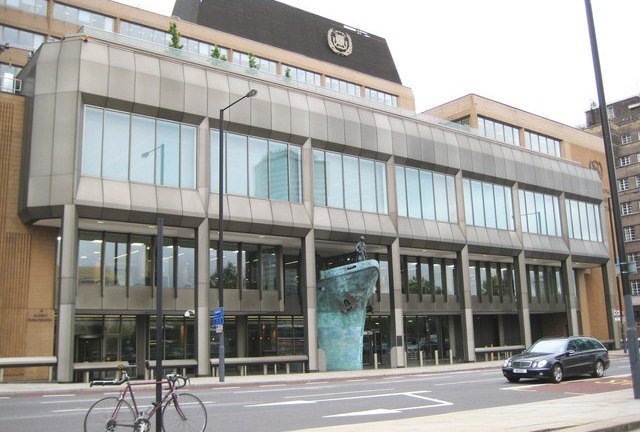Time-constrained MEPC closes, plenty on the agenda for next year

The Marine Environment Protection Committee (MEPC 75) of the International Maritime Organization (IMO) closed on Friday, not reaching a decision on the proposal of eight industry organisations to establish a $5bn R&D fund, from 2023 onwards for the next 10 years, to accelerate the availability of zero-carbon technologies and fuels.
Acknowledging the complexity of the proposal, some 60 delegations requested to speak to express many diverging views and comments. These ranged from operational and administrative issues to legal matters that needed clarifying, such as intellectual property rights, and the legal structure and governance for the proposed International Maritime Research and Development Board (IMRB), which would oversee the proposed $2 levy per tonne of bunker fuel. Transparency and accountability were also identified as critical issues.
Some delegations were in favour of requesting the IMO secretariat to conduct a feasibility study on the proposal by Vanuatu that the IMRB should be integrated as a new department into the IMO, rather than establishing it as a stand-alone, non-governmental organisation – as was suggested by the industry sponsors. However, it was felt that such a study was premature.
The question was also raised if the MARPOL Convention was the right instrument with regard to the establishment of an R&D fund based on a mandatory contribution in the form of a levy on the amount of fuel oil consumed, with payments certified by the flag state and certificates subject to Port State Control.
The committee agreed that more detailed consideration of the proposal was required than was possible within the severe time constraints at this session, which had to be held virtually due to the Covid-19 pandemic. It therefore decided to invite member states and other stakeholders to prepare more detailed submissions for further discussion at its next meeting in spring next year.
The backers of the R&D proposal – shipping’s largest global associations – said on Friday they were happy with the reception it had received at IMO, hopeful that it could be carried forward next year.
Simon Bennett, deputy secretary general of the International Chamber of Shipping (ICS), said: “Just about every government that spoke highlighted the critical importance of R&D, and a large number of governments, probably representing the majority of the world’s tonnage, supported the concept of an IMO supervised fund, financed by industry. But there are many other states at IMO who we still need to persuade and we’ll work hard to address their legitimate questions. We recognise the unprecedented nature of our proposal, but unless IMO is willing to take forward the industry’s offer of $5bn to accelerate R&D within the IMO regulatory framework, it’s really difficult to see how the industry can make IMO’s 2050 target. We need speed and scale to meet the climate crisis.”
A number of delegations urged the secretariat to review working arrangements for MEPC 76 and some delegations indicated that they would work intersessionally, on an informal basis, in order to coordinate the formulation of further proposals and speed up the work.
New submissions may be expected to include proposals for the IMO to commence work immediately on the development of market-based measures (MBMs). Less Developed Countries (LDCs) and Small Island Developing States (SIDS) reiterated that MBMs are their most urgent priority and should generate funds to provide financial assistance and capacity-building for greenhouse gas emission reduction. The benefits from an IMRB should be equal for all and any imposition of extra costs on a vital sector like shipping was not acceptable, especially in view of the severe economic downturn due to the current pandemic. Nicaragua and Guatemala, severely affected by the recent Storm Eta, pointed out that climate change was already imposing huge costs on a growing number of vulnerable coastal states.
A number of European countries agreed that the IMO should start working without delay, at MEPC 76, on the development of MBMs as these formed “a critical part of the package” of short-, medium- and longer-term measures stated in the agreed IMO strategy on climate change abatement.
In summing up the committee’s debate, the chair, Hideaki Saito of Japan, also noted that a number of delegations supported the conduct of an impact assessment before the committee makes a firm decision on the establishment and funding of an IMRB.
Saito was re-elected for 2021, together with his currently serving vice-chair, Harry Conway of Liberia.
Also decided on Friday’s closing day of MEPC 75 was a decision to ban heavy fuel oil (HFO) in Arctic waters. However, NGO the Clean Arctic Alliance called the inclusion of loopholes – in the form of exemptions and waivers – in the draft regulation “outrageous” as they mean an HFO ban would not come into effect until mid-2029.
By some distance the most significant outcome from the 75th MEPC gathering came in the early part of the week with the decision to enforce short-term greenhouse gas measures across the entire merchant fleet.
MARPOL legislation will see two new measures added: the technical requirement to reduce carbon intensity, based on a new Energy Efficiency Existing Ship Index (EEXI) from 2023; and operational carbon intensity reduction requirements, based on a new operational carbon intensity indicator (CII), due to launch in 2026.
